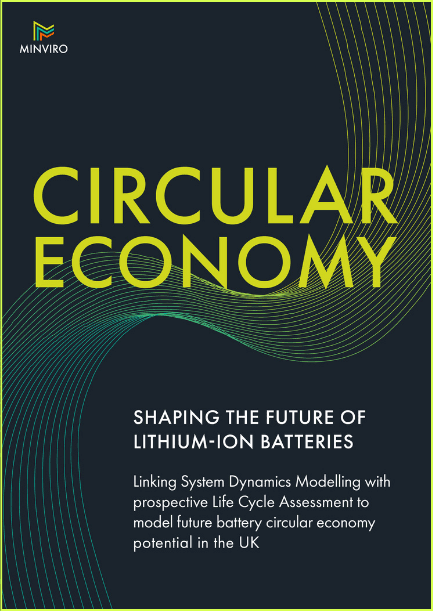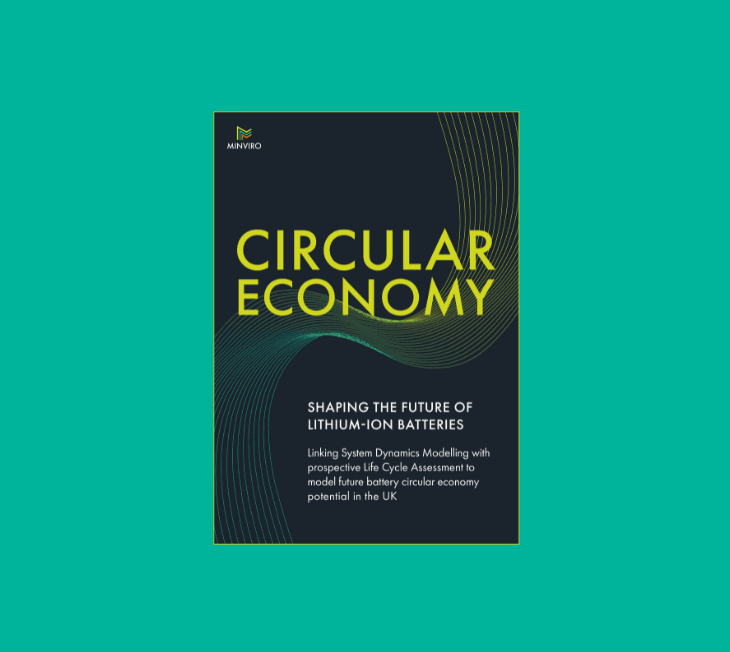- solutions
- industries
- about us
- resources
Whitepapers
Circular Economy Shaping the Future of Lithium-Ion Batteries
By Sahin Alacacayir, Irdanto Saputra Lase, Robert Pell, Jordan Lindsay
With growing climate change pressures, a booming electric vehicle market, and an unprecedented demand for critical raw materials, circular economy strategies are crucial for achieving the clean energy transition. Using an innovative modelling and investigative approach that uniquely combines Systems Dynamic (SD) modelling and prospective LCA (pLCA), this white paper forecasts the environmental and supply chain benefits of circular economy interventions for the lithium-ion battery (LIB) market, using the UK as a case study. This unique approach provides a best-in-class analysis of the UK's potential to lead in circularity within the battery sector, offering a roadmap for policymakers, industry stakeholders, and researchers.
Download
The outline
What will you gain from this paper
Gain insights into how circular economy practices can advance the lithium-ion battery industry, ensuring its sustainability amidst rapid growth. Understand the potential of recycling technologies and policy support in securing material supply chains and mitigating environmental impacts. This paper provides a detailed analysis of the UK's potential to lead in circularity within the battery sector, offering a roadmap for policymakers, industry stakeholders, and researchers. Equip yourself with knowledge to make strategic decisions that align with global decarbonisation goals and the UK’s transport transformation ambitions.
This white paper is focused on Lithium-ion batteries used for electric vehicles.
The Need for Circular Economy Practices
Explore the pressing need for sustainable raw material sourcing and comprehensive circular economy strategies within the rapidly expanding electric vehicle market. Learn how circular economy practices can support mitigating supply chain vulnerabilities and enable the sustainable sourcing of critical raw materials like lithium, cobalt, and nickel.
Advancing Recycling Technologies
Discover the critical advancements in recycling technologies that are key to sustaining the lithium-ion battery supply chain. Understand their potential to reduce reliance on virgin raw materials, conserve resources, and minimise environmental impacts across the supply chain.
Policy Frameworks to Support Circularity
Understand the vital role policies play in enabling the transition to circularity in the lithium-ion battery market. Highlighting the necessity for regulatory guidance and financial incentives that can stimulate innovation in waste management and ensure the economic viability of circular economy strategies.
Environmental Benefits of Circular Economy Strategies
Gain insight into the potential environmental advantages offered by adopting circular economy strategies within the battery sector. This includes significant reductions in greenhouse gas emissions, decreased ecological footprints, and the conservation of biodiversity through reduced raw material extraction and habitat disruption.
The Future of Battery Raw Materials
Examine the future challenges and opportunities in the supply of battery raw materials, underlining the importance of circular interventions to ensure security and sustainability. Providing a detailed analysis of projected demand surges for key materials and how circular economy practices can mitigate these pressures by improving efficiency, reducing waste, and fostering innovation in material recovery and reuse.
download
Get access today
Fill in the form below
